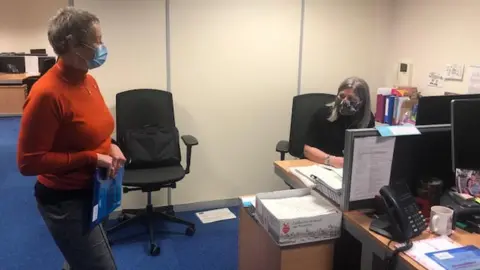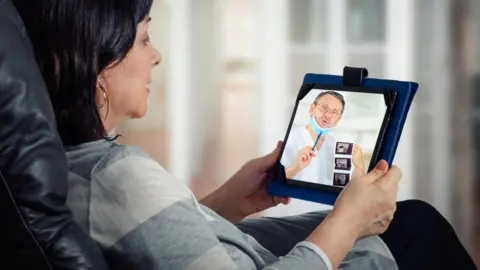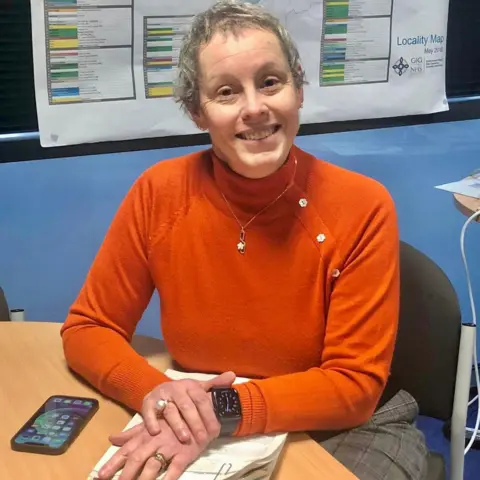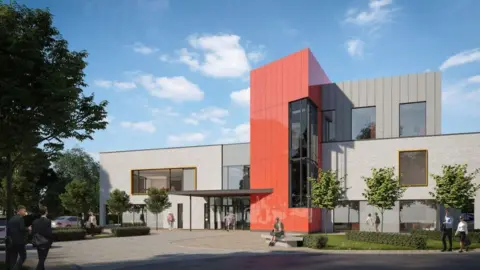Betsi Cadwaladr: Health board's new chief pledges lessons from Australia
 BCUHB
BCUHBWales can learn from Australia in how to deliver healthcare in rural areas, the new boss of the nation's largest health board has said.
Wrexham-born Jo Whitehead has returned to Wales as chief executive of the troubled Betsi Cadwaladr health board after working in northern Queensland.
She pointed to virtual outpatient appointments "to save a five-hour road trip" as one idea which could work.
Mental health services were also a key priority, Ms Whitehead added.
She took up her new post on New Year's Day, shortly after the board was taken out of special measures, having been subject to the highest level of Welsh Government intervention for more than five years.
In her first in-depth interview since returning to Wales, Ms Whitehead pointed to similarities between north Wales and north Queensland, "a coastal community with a strong tourism sector, a history of heavy industry and mining and a rural hinterland".
Virtual appointments were "definitely something we can learn from Australia", Ms Whitehead told the Local Democracy Reporting Service.
 Getty Images
Getty Images"Even before the pandemic the Australian healthcare system was keen and focused on virtual healthcare because it's so far for patients to travel," she said.
"The idea of a virtual consultation for an outpatient appointment, to save a five-hour road trip, is something the Aussies got to be quite good at."
On the matter of mental health, Ms Whitehead said she knew there was still work to be done at Betsi Cadwaladr to gain public confidence, with the service still under "targeted intervention" by the Welsh Government.
 BCUHB
BCUHBShe pointed to investment in early intervention teams, working with GPs as patients' first port of call, and collaboration with partners such as councils to address issues related to mental health such as poor housing.
Ms Whitehead confirmed the health board was in "the very early stages" of looking at a new site in the grounds of Ysbyty Glan Clwyd for its Ablett mental health unit, whose Tawel Fan ward was the subject of a damning investigation.
Denbighshire councillors rejected the original plan for a £64m, 64-bed facility and multi-storey car park after local people claimed its size and scale would affect their privacy.
 Powell Dobson Architects
Powell Dobson Architects Ms Whitehead also pledged to clear a backlog of planned treatment of all kinds that had built up during the pandemic.
Currently, more than 50,000 patients have been waiting for treatment for at least 36 weeks.
Mobile units were one solution under discussion, she said.
"That additional physical theatre, bed and diagnostic capacity will help us to try and catch up on our backlog," added Ms Whitehead.
